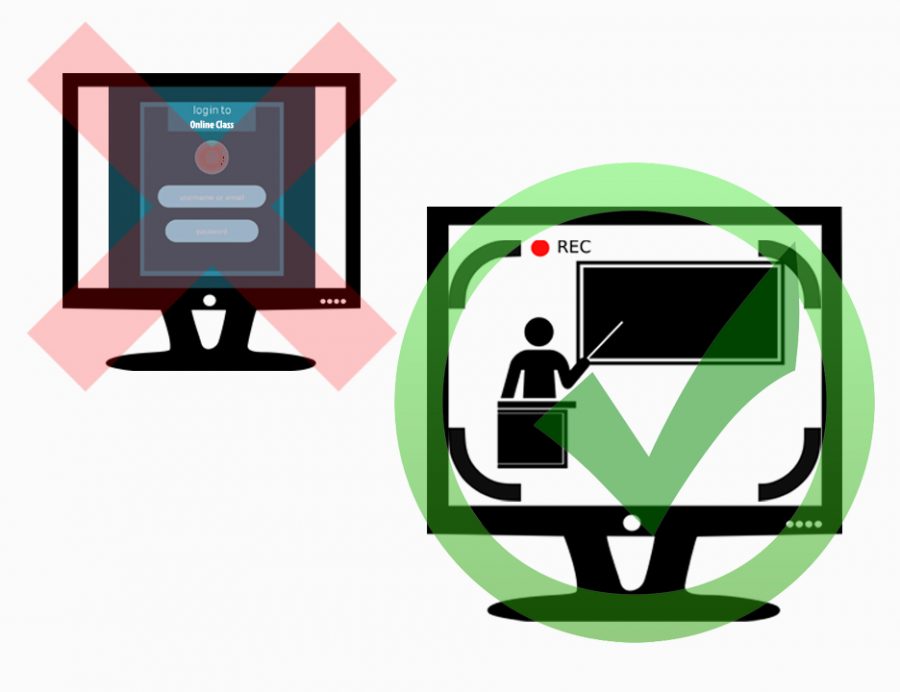OPINION: Zoom attendance policies need to be reworked
Attendance policies in the digital age have to be reevaluated
In the world of online classes, Zoom attendance policies have to take into consideration students’ lives.
September 15, 2020
Some classes have strict attendance policies. Others couldn’t care less as long as you do your work, and some are happy on the middle ground — strongly recommending you show up but not penalizing you if you decide not to.
With classes being online now, attendance policies feel like they changed very little despite how much our learning environment has changed.
“It’s pretty hard not to attend a lecture — you just pull up your computer and go onto Zoom,” said Jacob Olsen, senior civil engineering major. “[Professors] that don’t really care about attendance policies usually just record [their classes].”
It is true that it is much easier to show up to a class when all you have to do is turn on a computer.
One of my roommates is in a course that has a policy of three absences, and you fail. I have a course like that as well; three absences are all you have. If you are late or leave early by more than ten minutes on three occasions, that counts as an absence, and technological issues are typically not a valid excuse.
When it comes to classes like that, Olsen said he thinks it is harsh, but he has never had issues with attendance. Olsen said he understands the reasoning behind courses with strict attendance policies.
“I’m paying them to teach me, so if I’m not attending classes, that’s basically money down the drain,” Olsen said.
Olsen said the fact many of the lectures are recorded allows students like him, who may struggle with note-taking sometimes, to have more opportunities to take better notes and review content.
But I feel that, if we are paying for the course, the professor still gets paid. The university has their money. If we can pass without attending lectures, why should we have to worry about automatically failing because of attendance?
This is not a job. If we were getting paid to show up and do our work, I would expect us to be required to show up and completely dedicate ourselves to what we are assigned.
Colin Lang, junior management information systems major, said at least half of his classes have attendance policies but that it is hard to get mandatory attendance now that classes are all online.
Most of his classes record the lectures and upload them so they can be watched afterward. He said most of his classes tie attendance to grades in a small way, and he does not think he has seen any classes with more than 5 percent of the grade based on attendance.
Lang said he would want to have open communication with his professors should they have a very strict attendance policy to make sure he understood whether they would accept reasonable excuses. He said he would be nervous with a super strict policy, but he tries to go to class regardless of the attendance policy.
Lang said the flexibility in scheduling with classes that are lax in attendance and recorded lectures allows students more control. He said he could see that as being beneficial but also understands that not having an attendance policy at all could hurt students more than help them.
This is a new environment for many of us and having class online does require adjusting. Some students still have back-to-back courses with no time to grab lunch if professors do not allow you to eat. Some people have roommates or family who interrupt them. Others may not have access to stable internet and well-functioning technology.
While attendance policies have their merits, at the end of the day, the student makes the choice whether to show up or not and sometimes someone just cannot make it.
Attendance should not be a matter of passing or failing a course, but it should remain strongly recommended.









